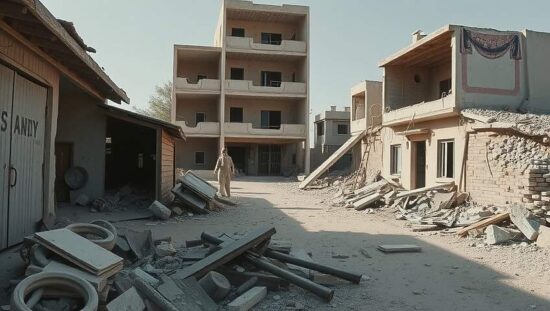The capture of Al-Faschir by the Rapid Support Forces (RSF) in Sudan’s Darfur region has unleashed a fresh wave of atrocities, compounding a humanitarian crisis already exacerbated by a 17-month siege. The fall of the city, the last significant military stronghold in the contested region, marks a significant escalation in the conflict, with credible reports detailing systematic violence against civilians and raising profound concerns about ethnic cleansing.
Despite international condemnation, the RSF has attempted to portray itself as a stabilizing force, even releasing a video purportedly showcasing organized fighters and depicting the arrest of Abu Lulu, a notorious figure who previously boasted of killing approximately 2,000 people in TikTok videos. This deliberate public relations effort stands in stark contrast to the harrowing accounts emerging from survivors.
Eyewitness testimonies describe mass executions and targeted attacks on civilian groups attempting to flee Al-Faschir. “Doctors Without Borders” has documented a horrifying incident involving an estimated 500 civilians and soldiers, most of whom were killed or captured while trying to escape on October 26th. One survivor recounted being spared only because a fighter recognized him, while all others in his group of 300 were killed. These accounts strongly suggest a campaign of terror designed to eliminate specific demographics within the population.
A United Nations Fact-Finding Mission has concluded that the atrocities constitute a “beabsichtigten Muster ethnisch gezielter Hinrichtungen” – a pattern of intentionally ethnically targeted killings. Survivors report that individuals are systematically sorted at checkpoints based on gender, age and perceived ethnicity, facilitating targeted violence. Disturbingly, accounts of sexual violence, including rape, are emerging, with one 19-year-old woman reporting she was assaulted after being questioned about her virginity.
Beyond the immediate violence, the RSF and its allies are reportedly engaged in a lucrative criminal enterprise. Numerous reports claim that prisoners are being held for ransom, with demands ranging from 5 to 30 million Sudanese pounds (approximately €7,000 to €43,000). One survivor testified to paying a ransom of 24 million Sudanese pounds to secure his release, highlighting the scale of this extortion racket.
Furthermore, the RSF actively obstructs civilians attempting to reach safer areas, such as Tawila. While the UN reports over 62,000 people have fled Al-Faschir, aid organizations estimate that only around 5,000 reached Tawila in the first five days, leaving the fate of over 50,000 individuals unknown and at considerable risk.
The rapid deterioration of the situation in Al-Faschir demands an immediate and robust international response. The alleged pattern of ethnically targeted killings, the systematic obstruction of humanitarian aid and the widespread abduction and extortion of civilians represent severe violations of international law and warrants a thorough investigation to ensure accountability for those responsible. The international community must prioritize the safety of the displaced population and exert maximum pressure on the RSF to cease its violent actions and allow unimpeded humanitarian access.





